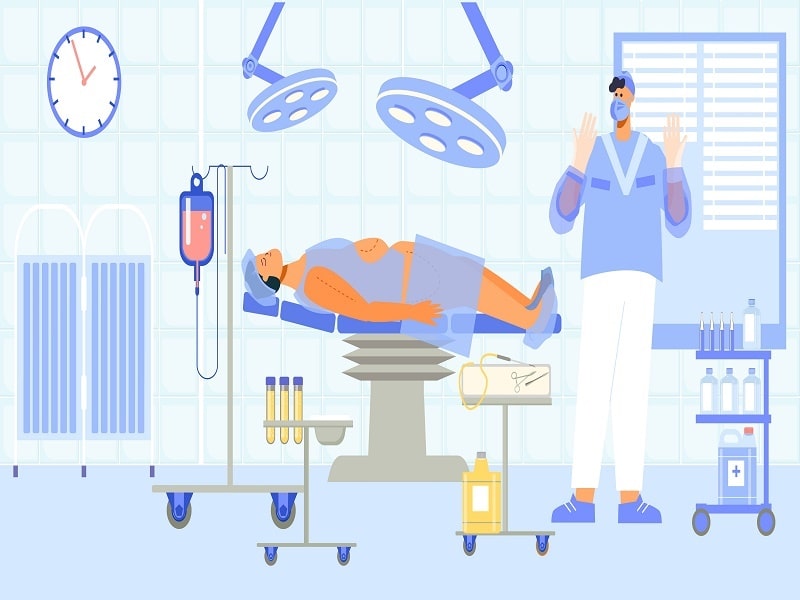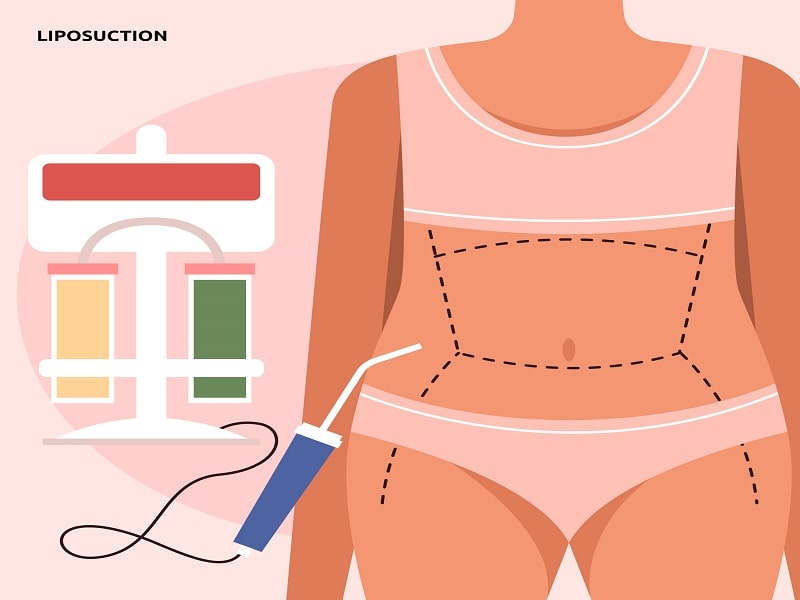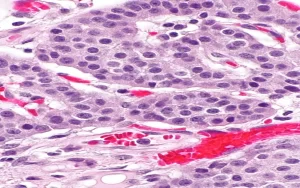Many people do not know that type 2 diabetes can be reversed. Lifestyle changes, such as diet and exercise, can go some way to managing the disease, but they are not always enough to prevent the disease from progressing and causing other serious health-related complications. In this situation, weight loss surgery may be a solution for some people with type 2 diabetes. Of course, this does not mean a complete cure, but it reverses diabetes very effectively and reduces the patient’s dependence on drugs.

Being overweight often plays an important role in the development of type 2 diabetes, as both diseases are caused by metabolic problems. This means that losing weight can often help improve type 2 diabetes, especially if it’s significant.
Weight loss surgery can be an effective tool to achieve this goal. If you have type 2 diabetes and are considering weight loss surgery, or want to learn more about how it can help control your diabetes, read on.
How exactly does bariatric surgery help treat type 2 diabetes?
Type 2 diabetes occurs when a person’s body becomes resistant to insulin, the hormone that controls blood sugar levels. When the body resists insulin, sugar remains in the blood and does not enter the cells, which can lead to an increased risk of heart disease, stroke, kidney failure, and even blindness.
Weight loss surgery treats type 2 diabetes in two important ways:
- Helps people achieve a healthy body mass index by reducing food intake and reducing the number of calories the body can absorb. This alone can reduce a person’s insulin resistance and make blood sugar control easier.
- It causes changes in digestive system hormones that lead to healthier metabolism and more stable blood sugar levels.
In this connection, it has been shown that weight loss surgery reduces the production of “ghrelin” in the body, a hormone that is secreted from the digestive system and increases appetite. At the same time, surgery increases the production of hormones such as GLP-1, which have a positive effect on insulin production. By producing more insulin, the body is better able to transport blood sugar into cells to be used for energy. So the blood sugar is lowered and the complications caused by it are reversed.
These changes can begin immediately after surgery, to the extent that many patients can taper off their diabetes medications in the first few weeks. Within 2 years, most are cured and no longer need any medication.
When patients’ diabetes symptoms are controlled, their health improves in other ways as well. The risk of complications such as heart attack, stroke, and kidney failure is reduced, and problems such as sleep apnea and fatty liver disease often improve.

Is bariatric surgery a permanent cure for type 2 diabetes?
As we mentioned, weight loss surgery has a significant effect on the improvement of type 2 diabetes. This does not mean that their diabetes is cured, but rather that it is controlled to the point where they no longer need to take medication to stabilize their blood sugar levels. However, their symptoms may recur and medication may be required if the patient regains the lost weight.
In some cases, type 2 diabetes may go away completely. This is more likely for those who were diagnosed with diabetes less than 5 years ago and did not use blood sugar medications before surgery.
What options are available for weight loss surgery?
Typically, two methods are used for weight loss surgery for patients with type 2 diabetes:
- Gastric bypass: This surgery reduces the size of the stomach and reroutes the digestive tract so that food bypasses most of the stomach and part of the small intestine, reducing the number of calories the body can absorb.
- Stomach sleeve operation: in this operation, a part of the stomach is removed and this organ becomes smaller and narrower (similar to a dress sleeve). Gastric sleeve can reduce the production of appetite-increasing hormones in the body.
Both gastric bypass and gastric sleeve weight loss surgery Weight loss surgery not only affects type 2 diabetes, but also affects all diseases caused by obesity, including: musculoskeletal disorders such as arthritis and some cancers (endometrial, breast and colon) and cardiovascular diseases (mainly heart disease and stroke). There are benefits and risks for both surgeries, which makes one of these surgeries preferable for each person. Your doctor will usually decide on the type of weight loss surgery you should have after reviewing your health and other conditions.
Who should have weight loss surgery?
One of the main factors in determining whether a patient is a good candidate for weight loss surgery is BMI. Those with a BMI of 40 or more are eligible.
However, evidence suggests that weight loss surgery is also beneficial for patients with type 2 diabetes who have a BMI of 35 or greater, especially if the patient’s diabetes is not well controlled.
Also, people who have tried all kinds of weight loss methods such as diet and exercise and did not get results, can consider surgery as an effective way to lose weight.
If you want to calculate your body mass index (BMI) to see if you are a good candidate for weight loss surgery, you can divide your weight in kilograms by your height in meters, squared.
Life after surgery
Immediately after the operation, you will be put on a liquid or soft diet. You gradually move towards a balanced diet that you should use for the rest of your life. You may also need to take vitamin and mineral supplements.
After recovery, you will be advised to follow a proper exercise program for the rest of your life. It is also necessary to see your doctor regularly so that the necessary evaluations can be done on you.
Last word
Bariatric surgery is a suitable procedure to reverse type 2 diabetes in obese people. By using this method, diabetes is controlled to a large extent and the need to take medicine is reduced or stopped. However, you should consider that most of the time, type 2 diabetes is not completely cured, but effectively controlled.



